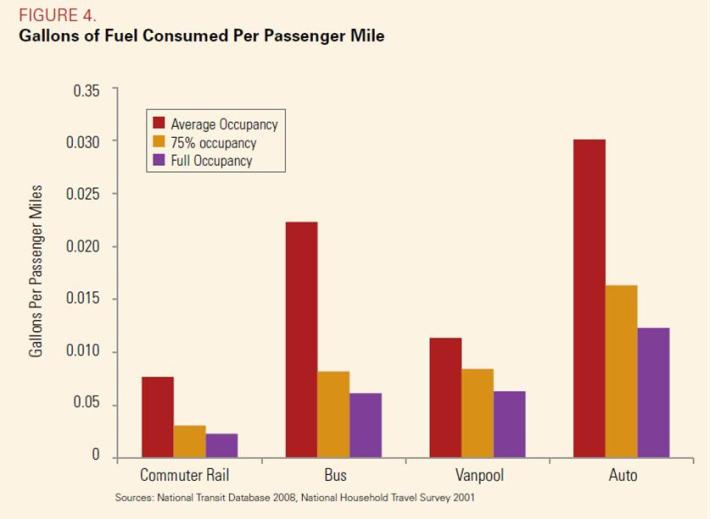Today, U.S. taxpayers see the cost of oil wars in the Middle East taken out of every paycheck, all to feed America's driving habit. A new proposal for more transparent pricing would shift that burden to the automobile drivers themselves by imposing a new oil security fee at the pump.
That’s just one of the recommendations in Taking the Wheel: Achieving a Competitive Transportation Sector Through Mobility Choice, a new report by the Mobility Choice Coalition. [PDF] The coalition brings together fiscal conservatives, environmentalists, and national security interests to propose transportation reforms that would reduce oil dependence.
Unlike many similar reports, the Mobility Choice study doesn’t put emissions reductions front and center. They’re more interested in fiscal restraint and national security – well-timed considerations for our current political climate.
The report is based on four key principles:
- Fair and transparent pricing – ensuring that people pay more directly for the road services they use. That includes HOT lanes, congestion pricing, more tolling, and the oil security fee.
- Allocating taxpayer dollars based on performance criteria and setting costs based on use – low-ridership transit systems and routes could be cut for not meeting cost-efficiency metrics.
- Pushing responsibility down to the metro level – the report authors suggest that federal funding only go to localities where regulatory barriers to multimodalism have been removed.
- Aggressively deploying innovation and the next wave of technology – intelligent transportation systems can provide real-time transit tracking, speed drivers through E-ZPass tolls, optimize traffic signals and improve parking policies.
The report also calls for smart growth land development patterns and inter-city rail.
When asked why they’re proposing some previously unpopular policy ideas, like congestion pricing, study author Anne Korin replied:
We’re not in a usual time now. We’re in a time where – whether you look at it at the municipal, state, or federal level – budgets are really crumbling. And crumbling budgets can’t support crumbling infrastructure. So that money has to come from somewhere.
We can keep borrowing it from China or we can try to ground ourselves again in basic economics and re-jigger our transportation system – and, I grant you, this won't be easy because it’s not the way our transportation system has been funded traditionally. But we can re-jigger our transportation system into one in which people actually pay for what they use, and actually get a better value for the money that they spend.
Rather than being a desperate attempt to react to a changing political landscape, the Mobility Choice Coalition responded to three long-standing public concerns: deficits and wasteful spending, oil prices and national security, and the environment. Korin says that although the report’s release is well-timed to coincide with the installment of a new, more fiscally-conservative Congress, it’s been in the works since long before the election.
Still, it’ll provide many useful talking points for transportation advocates trying to figure out how to sell reform to a more conservative set of policy players.






